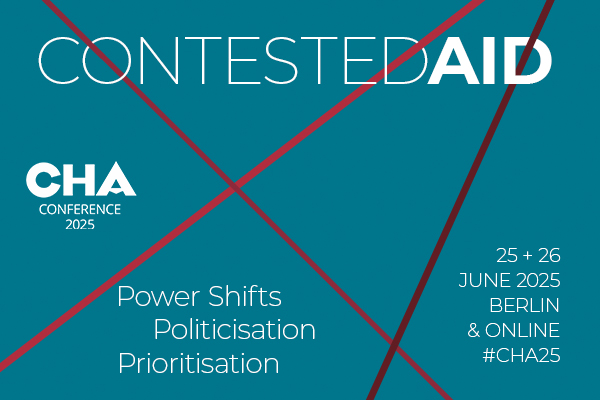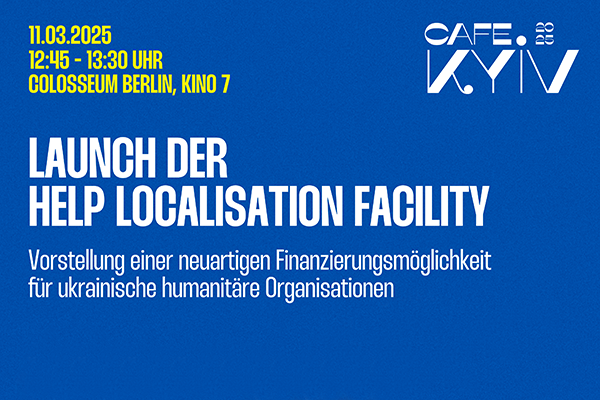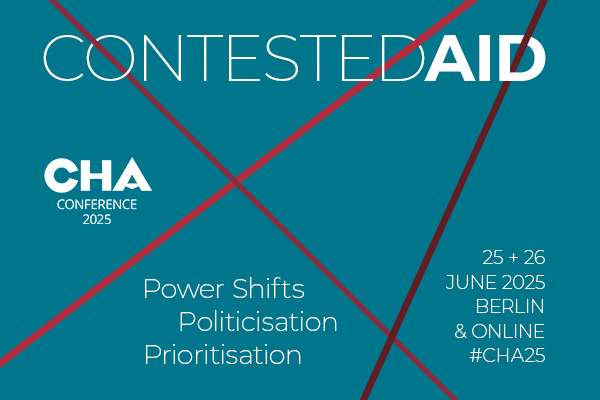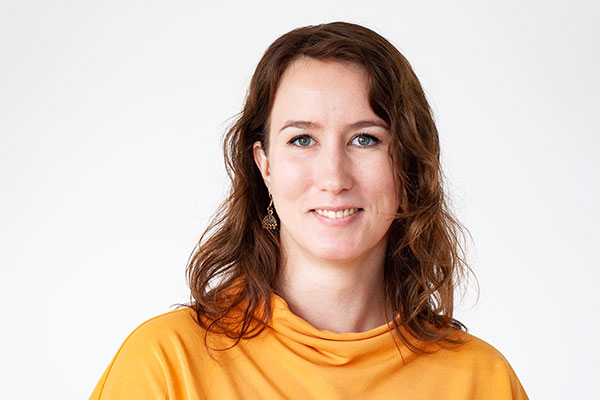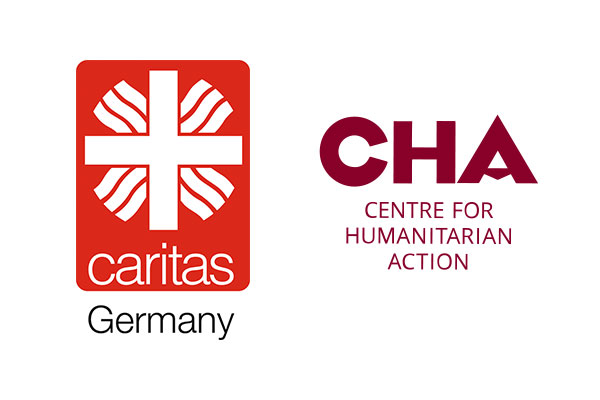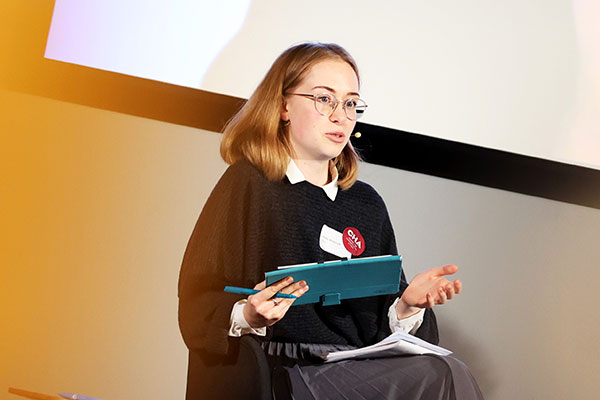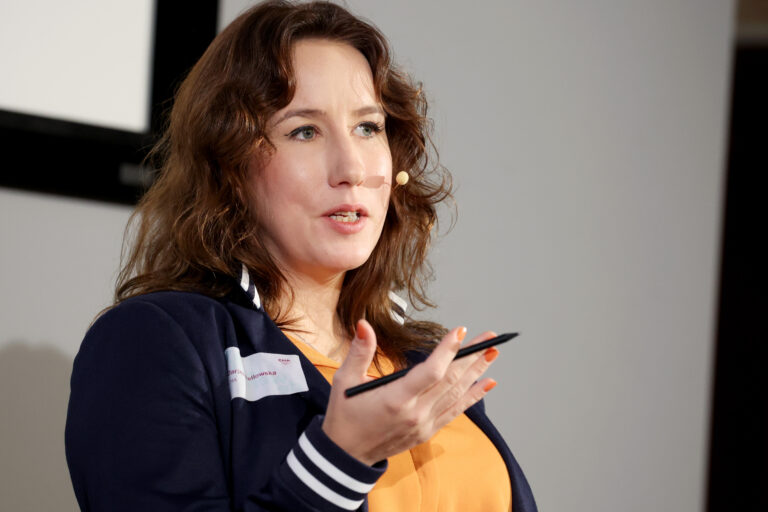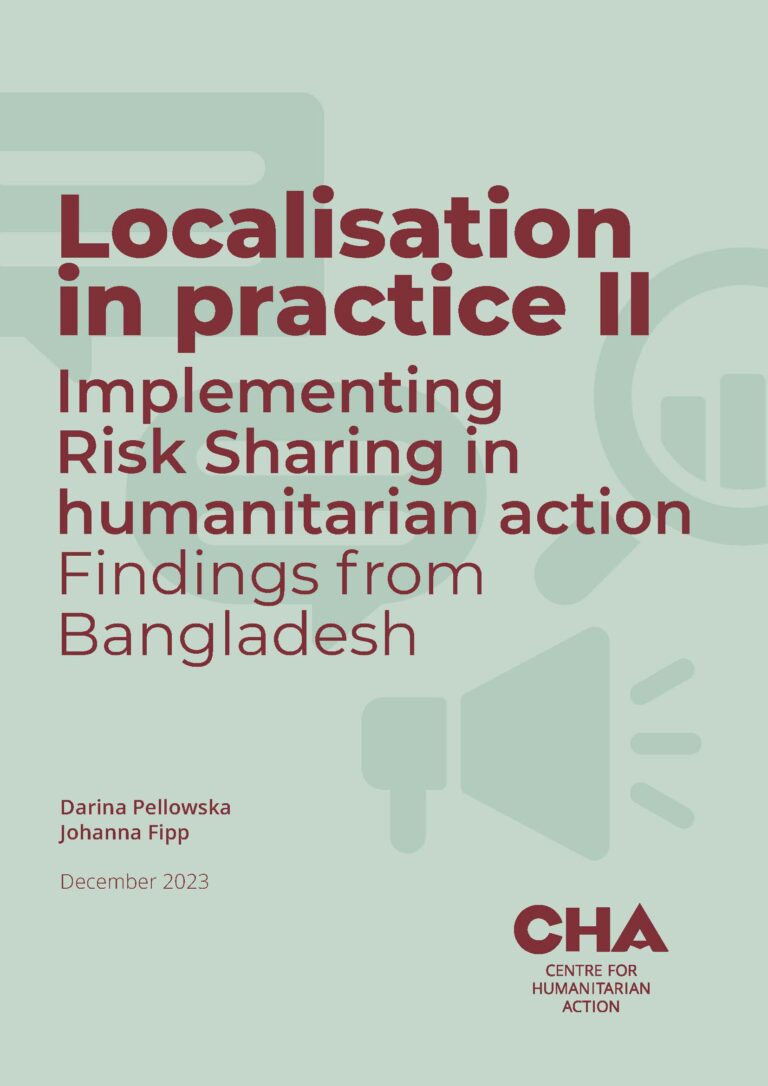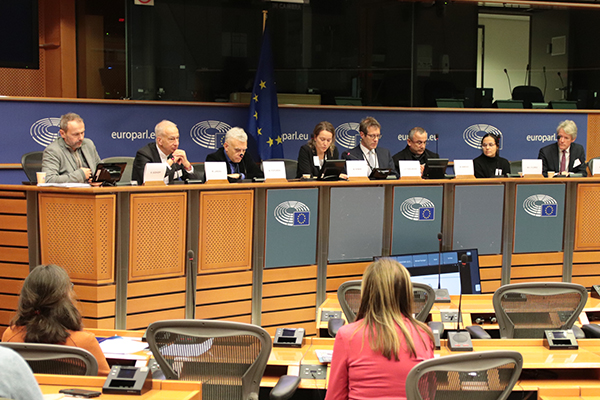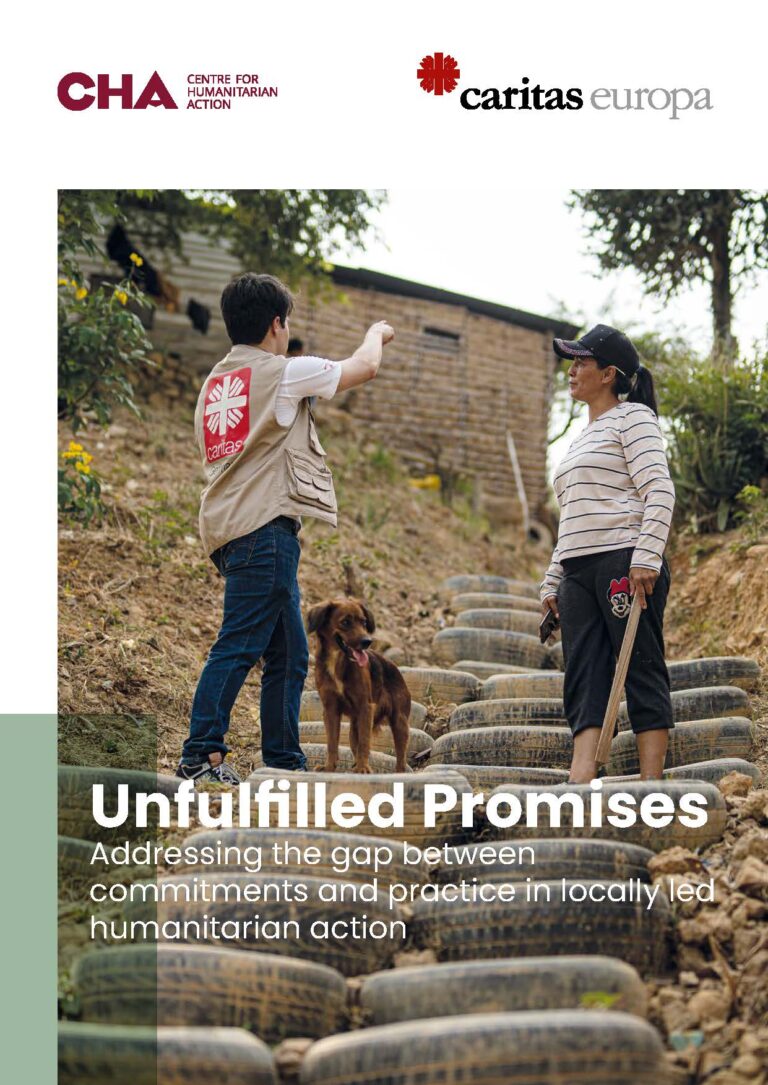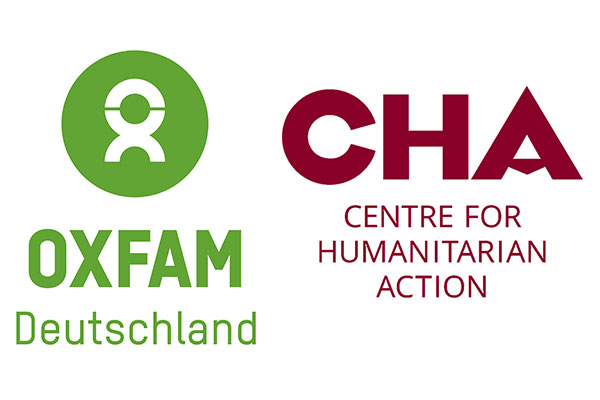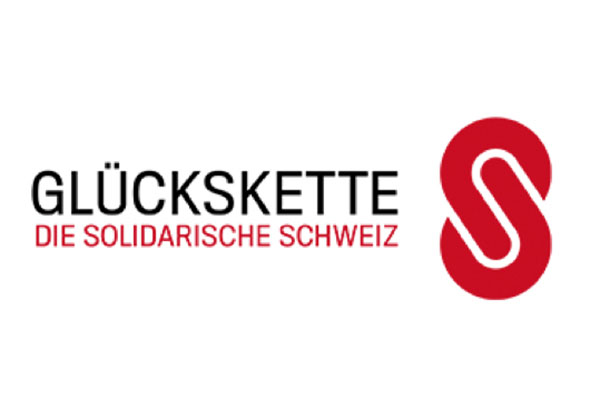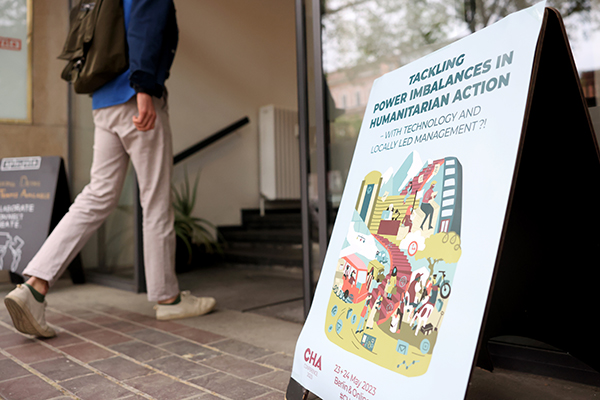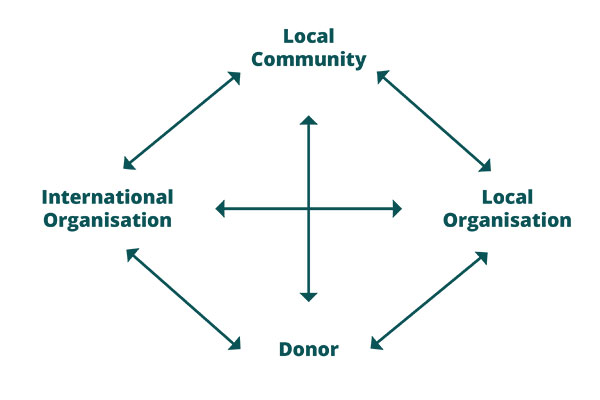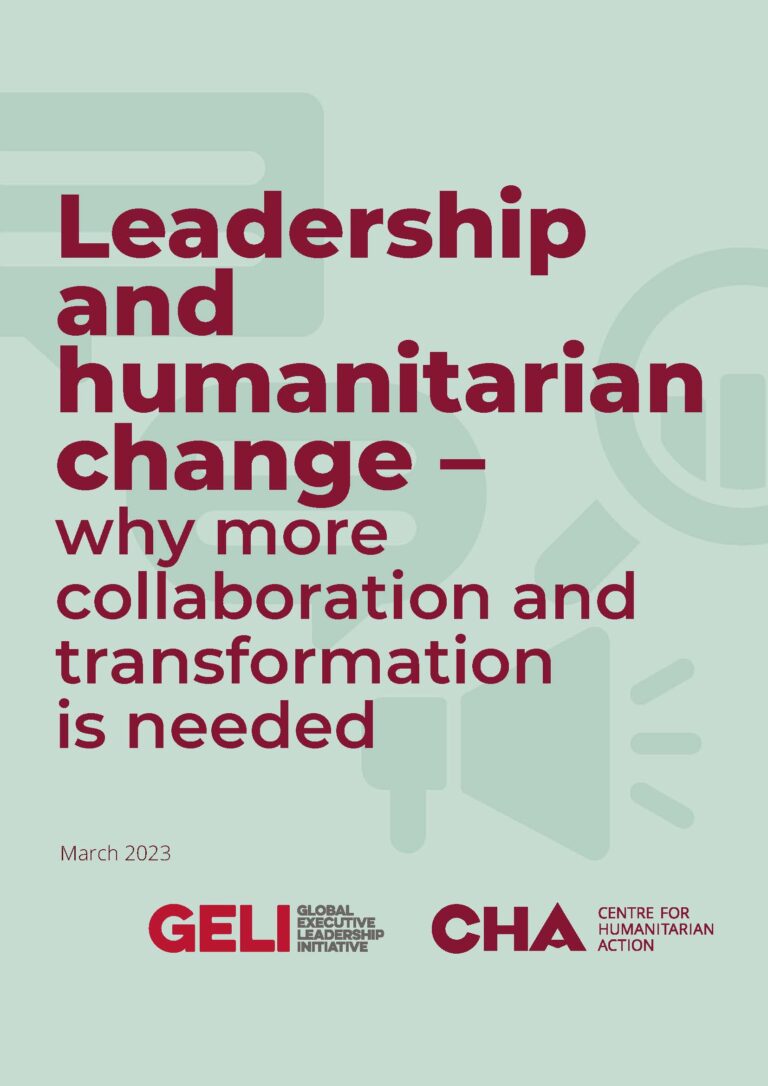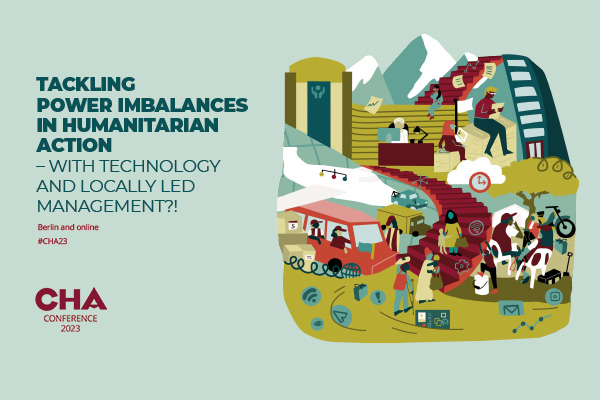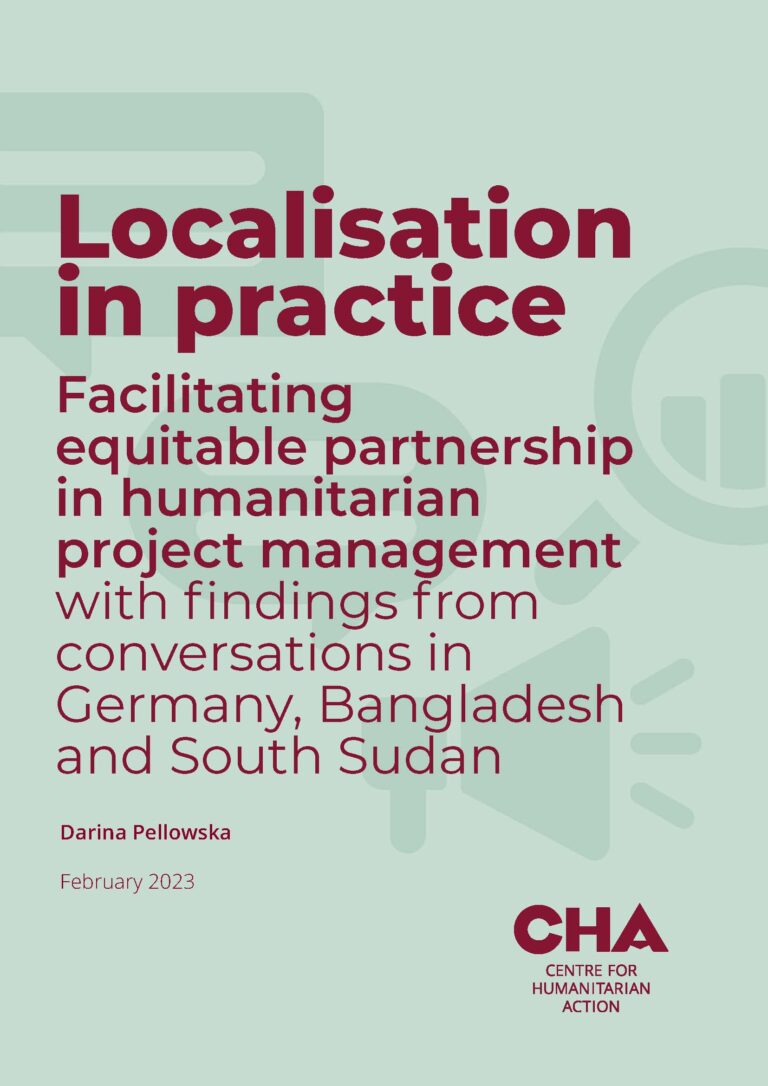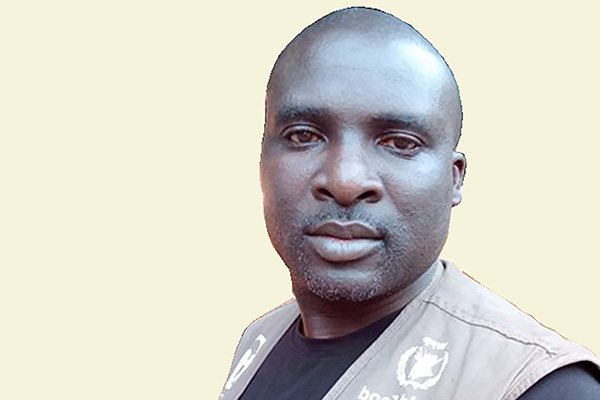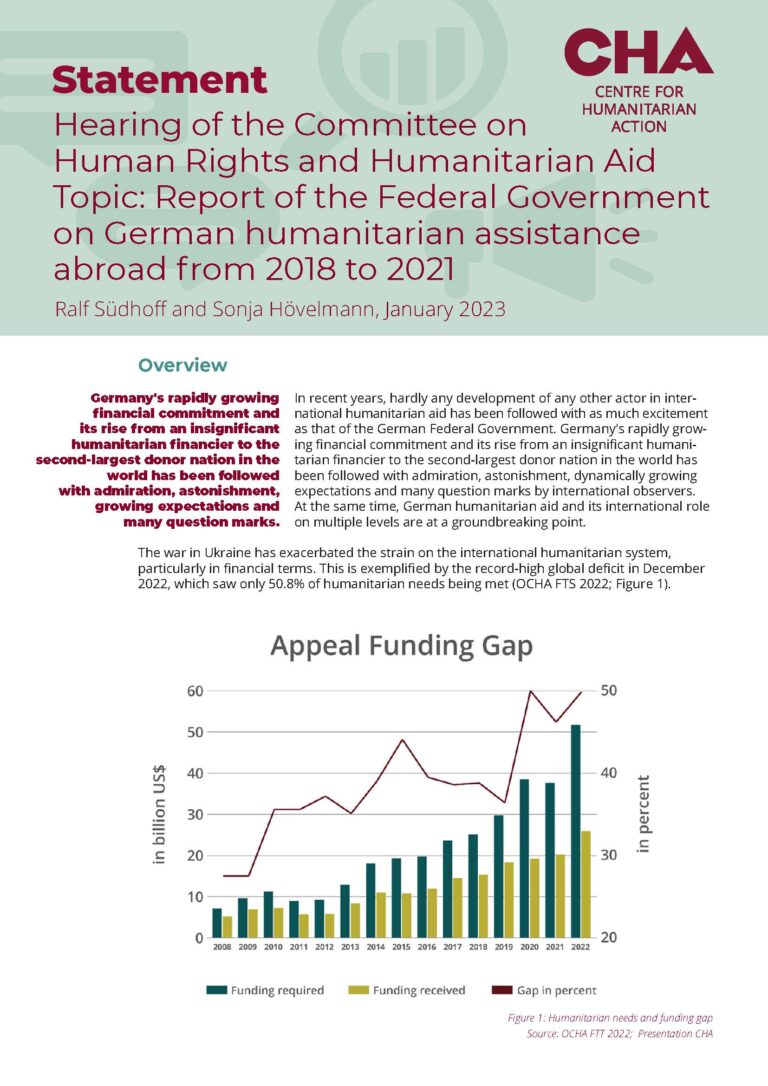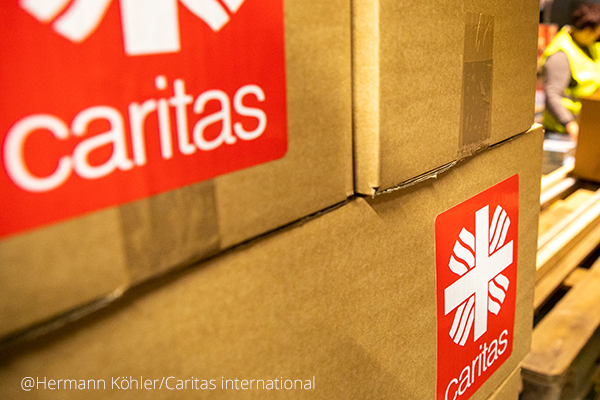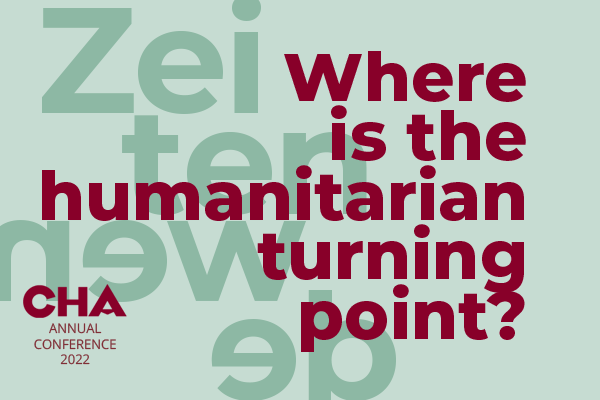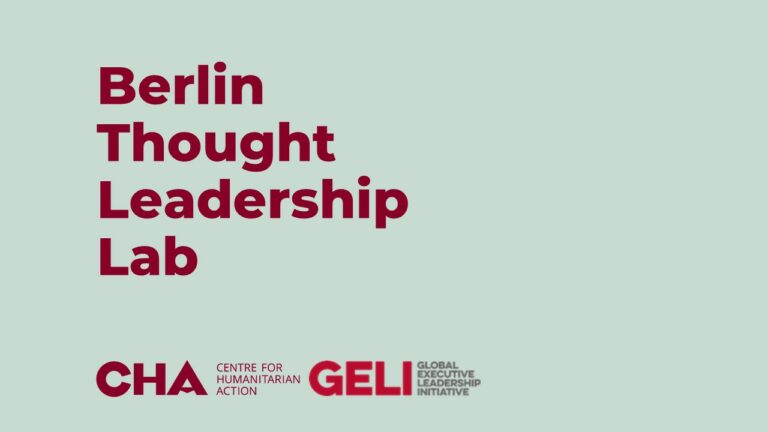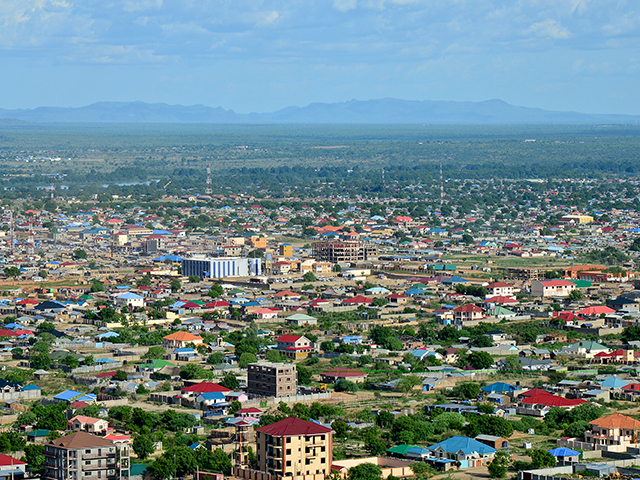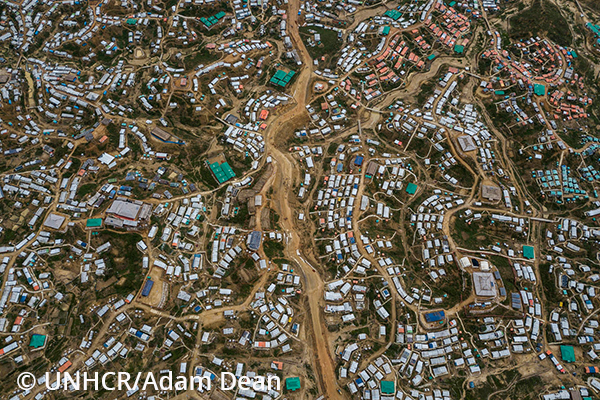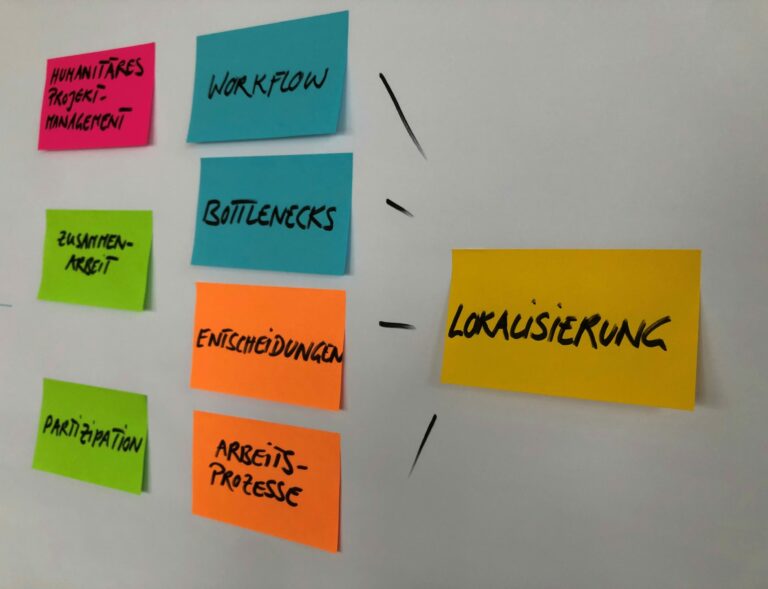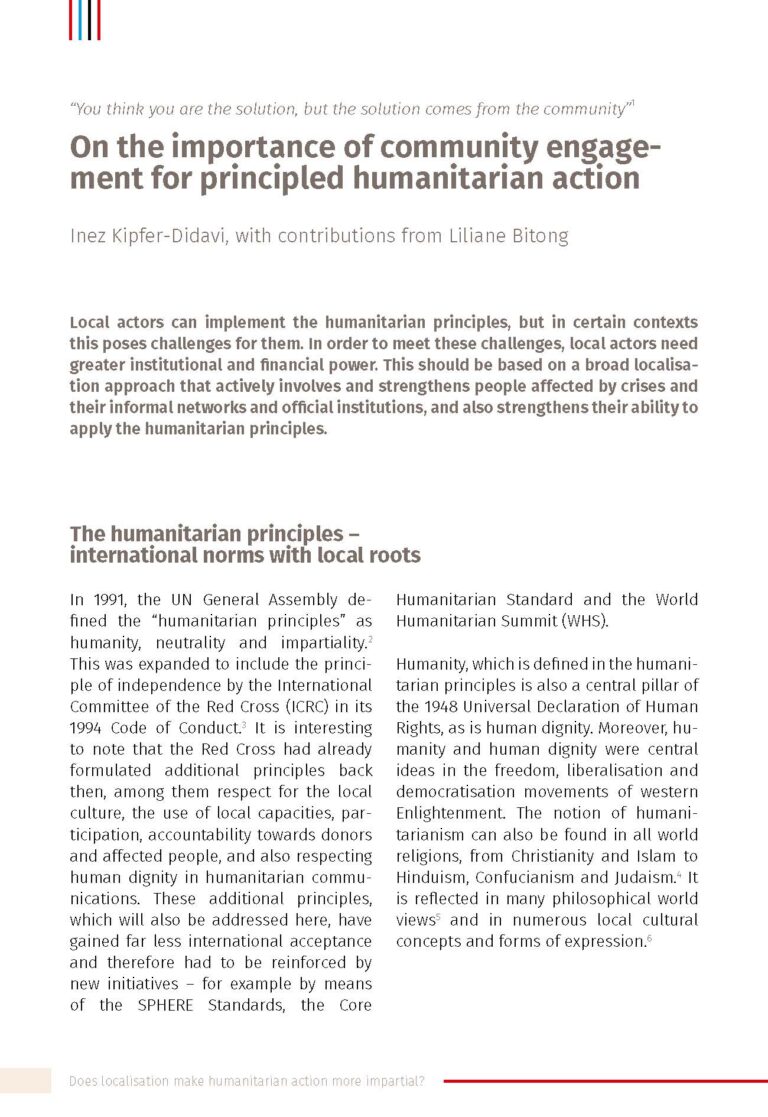Identifying and overcoming localisation barriers in the area of project management and risk transfer
Although humanitarian organisations based in Germany are strongly committed to strengthening local and national partner organisations in the Global South and have in many cases launched corresponding policies local voices continue to criticise the slow implementation of these initiatives in the project countries. Hierarchical partner and project management as well as rigid governance structures are frequently mentioned as key barriers that are fundamentally opposed to equitable cooperation between international NGOs and their local and national partners. The issue of risk distribution is a particularly interesting example herefor. Even though the need to shift away from the practice of risk transfer towards risk sharing is generally advocated for, established governance and management structures seem to prevent its implementation.
Against this background, this project will first analyse and specify the links between operational humanitarian project management and the delayed implementation of localisation in partner management. For this purpose, various workshops and focus group discussions are planned among humanitarian organisations in Germany and among their partner organisations in two case study regions. These participatory analyses and following interviews will be used to identify concrete management mechanisms that are suitable for strengthening local and national actors and for participatory cooperation at eye level. In a second step, these will be applied to the example of equitable risk management.
Contact person: Darina Pellowska
Identifying and overcoming localisation barriers in the area of project management and risk transfer is part of the project “Strengthening Programme and Policy Relevant Capacities of Humanitarian Actors in Germany” (SPreAD), funded by the German Federal Foreign Office.
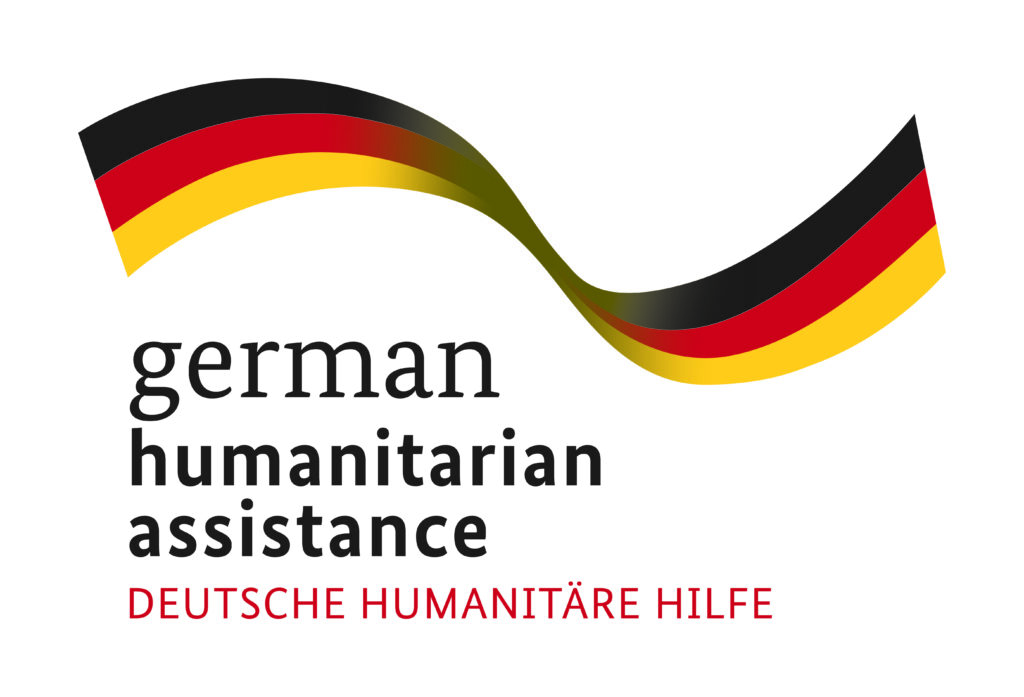
#CHA25 Conference Review
04.07.2025From 25.06.2025 – 26.06.2025, the CHA dedicated its annual conference to the topic “Contested Aid – Power Shifts, Politicisation and Prioritisation”. Here you can find all session videos of day 1.
Exchange with Hibak Kalfan
05.06.2025 15:00 - 16:00On 5 June CHA invited its members to a confidential exchange with Hibak Kalfan, Executive Director, NEAR.
Launch of the Help Localisation Facility
11.03.2025 12:45 - 13:30Help - Hilfe zur Selbsthilfe launched the Help Localisation Facility (HLF), together with the German Federal Foreign Office, the Ukrainian NGO Avalist and the Centre for Humanitarian Action.
CHA Conference 2025
25.06.2025 00:00 - 23:59The CHA Conference 2025 took place on 25 and 26 June 2025 in Berlin Kreuzberg with a focus on "Contested Aid - Power Shifts, Politicisation and Prioritisation".
The new German Humanitarian Strategy: What’s in for locally led humanitarian action
18.10.2024Localisation is a top priority in Germany’s new humanitarian strategy. Darina Pellowska analyses how the commitments made are (not) translating into concrete measures.
POSTPONED: Localisation (un)fulfilled: How can we foster accountability of international actors?
14.10.2024 11:00 - 12:30In December 2023, CHA and Caritas Europa published the report ‘Unfulfilled Promises’. Ten months later, we want to review these localisation promises again in an online event.
Goda Milasiute presents Caritas Report at KANK meeting
10.04.2024On 11 April, Goda Milasiute will present her publication “Unfulfilled Promises” at the Catholic Committee for Emergency Assistance (KANK), highlighting the significant discrepancy between the commitments made and the actual support provided to local humanitarian organizations.
Darina Pellowska on MzN international podcast
04.04.2024In “Chasing Impact – The MzN International Podcast” Darina Pellowska outlines the possibilities for equitable partnership in humanitarian project management.
Risk Sharing in Humanitarian Action
18.04.2024 12:00 - 13:00On 18 April 2024 Darina Pellowska discussed a feasible scope for Risk Sharing that meaningfully involves not only local/national and international organisations, but also donors.
Darina Pellowska presents paper at VENRO seminar
19.01.2024On 25 January, Darina Pellowska presents her current paper at the seminar “Localisation: Stocktaking for NGOs” organised by IFHV and VENRO.
Localisation in practice II: Implementing Risk Sharing in humanitarian action
17.01.2024Report launch at the European Parliament
06.12.2023On 5 December, the report “Unfulfilled Promises” for Caritas Europa was presented in the European Parliament.
Unfulfilled Promises
05.12.2023CHA Conference 2024
04.06.2024 00:00 - 23:59The CHA Conference 2024 focused on the topic “Climate & humanitarian crises and the lack of a joint response – Needs, narratives and necessities”.
How Germany can make a more ambitious commitment to localization in its Humanitarian Strategy
24.10.2023Maryam Zarnegar Deloffre, Director of the Humanitarian Action Initiative at the George Washington University, analyses Germany’s humanitarian strategy, offering insights into integrating localisation efforts akin to the US model.
Humanitarian Action in a Funding Crisis
29.11.2023 16:00 - 18:00In light of the upcoming cuts in the budget for humanitarian action, Oxfam Germany and the Centre for Humanitarian Action invited to a panel discussion: Is a Feminist Foreign Policy the Roadmap to a De-colonial Future?
Ralf Südhoff on humanitarian trends of the future
28.08.2023At Swiss Solidarity’s Partner Day on 21 September, CHA Director Ralf Südhoff will give a presentation on the humanitarian trends of the future.
#CHA23 Conference Review
12.06.2023On 23 and 24 May 2023, CHA has hosted a conference on the topic “Tackling power imbalances in humanitarian action – with technology and locally led management?!” In this video gallery you can review the entire conference.
2023 CHA Conference Podcast Double Feature
18.05.2023To get in the mood for the CHA Conference 2023, we invited two guests to the CHAtroom: Valentina Shafina and Arbie Baguios.
Workshop: Agile approaches in humanitarian project management
25.04.2023 09:00 - 13:00Is the expansion and testing of agile management methods in AA-funded humanitarian projects conceivable? CHA and the Federal Foreign Office invite to a workshop to discuss agile approaches in humanitarian project management.
Darina Pellowska presents paper at VENRO/IFHV workshop
27.03.2023On 30 March, Darina Pellowska will present her current paper at the workshop “Localisation: Stocktaking for NGOs” organised by IFHV and VENRO.
Leadership and humanitarian change
15.03.2023CHA Conference 2023: Tackling power imbalances in humanitarian action
23.05.2023 00:00 - 23:59At the CHA annual conference 2023, we will connect the two spheres of “digitalisation” and “localisation”, thus sparking a interlinked discussion on underlying power imbalances that shape the humanitarian sector.
Localisation in Practice
28.02.2023The stony path of innovation in organisations and humanitarian-development interventions – a local practitioner’s view from climate change affected South Sudan
24.01.2023If innovations are proposed by humanitarian actors on the ground, they bear the risk alone. Success, on the other hand, is quickly attributed to all. Jacob Mbudzi, a frontline humanitarian and development practitioner, outlines the difficulties he faced when promoting an innovative solution to climate change-induced problems in South Sudan.
CHA Statement on the report of the Federal Government on German humanitarian assistance
16.01.2023Darina Pellowska in Leadership Lab Podcast
08.12.2022Darina Pellowska, research fellow at CHA and head of the localisation project, discusses the aspect of localisation in humanitarian leadership in the third episode of “The Leadership Lab” podcast series initiated by GELI.
A Failure to Listen – How Amnesty International’s Ukraine Report is Symptomatic of the Issues of Meaningful Localisation
22.11.2022Will Wright uses the Amnesty International’s Ukraine Report and the response to the report as a way of better understanding the general failure to localise in armed conflicts and particular in the context of Ukraine, as well as to discuss ways to ameliorate it. [English]
CHA assigned to write the Flagship Report on locally led humanitarian action for Caritas Europa
13.09.2022The Centre for Humanitarian Action (CHA) has been contracted to write the first Caritas Europa (CE) Flagship Report on locally led humanitarian action.
CHA Annual Conference 2022: Where is the Humanitarian Turning Point?
23.11.2022 00:00 - 23:59Is it time for a „humanitarian Zeitenwende”, and what elements would be essential for this? This is the topic of the CHA annual conference in 2022.
Berlin Thought Leadership Lab
10.11.2022 15:00 - 18:00The Global Executive Leadership Initiative (GELI) and the Centre for Humanitarian Action (CHA) invited to an exchange for German Humanitarian CEOs and leading personnel on the topic "Leadership for an Ever-Changing World".
Open house at the German Federal Foreign Office
20.08.2022 10:00 - 18:00On 20 and 21 August, the CHA will be present at the Open House of the German Federal Foreign Office - with a stand and at two panel discussions.
CHAtroom #10: New warfare, new humanitarian action
06.07.2022160 years after Henri Dunants Essay on the Battle of Solferino, Hugo Slim wrote a book on new warfare, cyber wars and its implications for the reform of the humanitarian sector. We discuss this in the 10th episode of the CHAtroom podcast:
Workshops in Juba, South Sudan
22.06.2022 09:00 - 13:00In late June, CHA and the South Sudan NGO Forum will hold a multiple-day workshop in Juba to identify and discuss opportunities and limitations of localized project management in South Sudan.
Workshops in Bangladesh, Cox’s Bazar
09.02.2022 15:00 - 16:30Strengthening local humanitarian actors is one of the key challenges in future humanitarian action. The Centre for Humanitarian Action (CHA) invited to three confidential online workshops to identify and discuss the current possibilities and limitations of localised project management in Cox’s Bazar.
CHAtroom #6: Localisation
25.11.2021How does the localisation of humanitarian action work in practice? Don’t we perhaps even have too romantic an idea of local partners? In this sixth episode of the CHAtroom, Kayu Orellana from Help – Hilfe zur Selbsthilfe e.V. provides answers [in German].
Workshop: Localisation in practice
29.11.2021 10:00 - 18:00In this confidential workshop, the current opportunities and limitations of localised project management in humanitarian action were elaborated and discussed. The objective was to identify a concrete scope for action and critical barriers.
CHAtroom #3: Reform project humanitarian aid
31.05.2021In the third episode of CHAtroom, CHA Research Fellow Darina Pellowska explains what the so-called Grand Bargain and localisation of humanitarian aid are all about, what makes an organisation “local” – and what her camera has to do with it.


